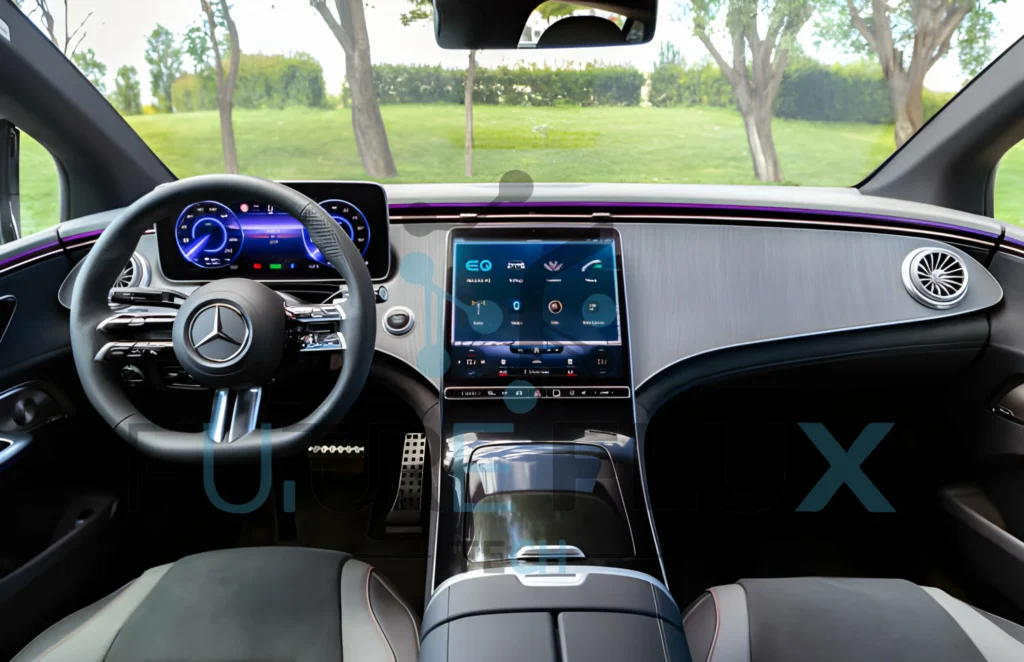Mercedes Benz is a renowned brand in the world of electric cars. The famous car manufacturer has launched many electric cars with amazing features. Recently, Mercedes made a bold statement to get full electrification by 2030. However, the company is failing to work on Mercedes-Benz EV 2030 strategy. Now, Mercedes Benz car manufacturers said the market dynamics will tell the speed of its electrification journey.
The global car industry seems increasingly pessimistic about going for an all-electric future. But there are some factors and EV trends that may come in the way. This article will discuss Mercedes-Benz EV strategy and other crucial related points.
Table of Contents
ToggleMercedes-Benz EV 2030 Strategy
Some time ago, Mercedes Benz boldly stated that it plans to go all-electric by 2023. However, now it is backing off its plan of going all-electric, which may also affect electric vehicle sales 2023. The most probable reason for this backing off could be the slowdown in sales growth. Yes, you heard right. After noticing a slowdown in sales growth, the international auto industry is more doubtful about electrifying the future. This may also be the reason why America is missing out on the best electric vehicles.
Besides, the Mercedes-Benz EV 2030 strategy is young, it was only three years ago when Mercedes announced this plan.
Also, phasing out gas-powered cars was ultimately included in the plan. Now, the car market is not allowing Mercedes-Benz to follow its strategy. It is because the company gave a statement about the Mercedes EV sales forecast. It said it only expects 50% of its sales to be all-electric, showing a significant drop from the old rosier outlook. It shows that gas-powered and hybrid vehicles will remain a part of Mercedes’ future for a long time. This plan could be a crucial part of sustainable transportation initiatives. However, the market sales drop made the well-known company take back its decision or may be holding it for some time.
Economic Realities and Industry Trends
After facing economic blow and slow demand for electric vehicles, Mercedes has altered its Mercedes-Benz EV 2030 strategy. After this realization, the company decided to manufacture hybrids and Internal Combustion Vehicles (ICE) and produce electric vehicles for the next decade. This U-turn shows broader industry sentiments and a decreased transition to electric vehicles due to slow market conditions.
Market conditions indeed shape the Mercedes Benz electrification strategy. It shows a broader trend where customer preferences steer the shifts in the car industry and automotive industry evolution. The lack of infrastructure is the main problem that the electric vehicle owner faces, therefore, hybrid sales witness a prominent uptick. As the charging infrastructure increases, more customers realize the importance of hedging their bets. This realization has resulted in a notable boost in hybrid sales.
Industry Cautions and Emerging Realities

The strategic shift of Mercedes Benz reflects a broader industry caution over the future of electric cars. It is highlighted by other car manufacturers, slow sales growth projections, and revised plans. Electric vehicles face challenges amidst increasing price sensitivity. However, the car industry is also dealing with problems and balancing the ambition of transition to electric vehicles with market realities.
EV Sales Growth in Different Parts of the World
Generally, EV sales growth is not booming anywhere globally, not even in Europe. Let’s have a look at the EV market trends USA. Electric Vehicle sales hit almost 8% of the total numbers in the US last year. On the other hand, they showed 13% of electric car sales in Europe. Sales are indeed growing at a different pace. The prime reason for this is that customers are getting more discerning about the pricing of electric cars.
However, they need to show more concern about reliability and charging time. Meanwhile, the sales of hybrids have considerably increased because people see them as more beneficial. They can avoid risks while the charging infrastructure gets built out. Considering the market conditions, we are hoping for a better future where zero-emission vehicle goals are fulfilled.
Conclusion
We are not denying the fact that electric vehicles or green energy vehicles are booming in the auto industry. Many famous car manufacturers, including Chevrolet, Audi, Polestar, and more are launching electric vehicles. But going all-electric may not be possible in the next few years for even reputable companies.
Mercedes-Benz made a bold statement of going all electric by the year 2030. However, later, the company said that it wouldn’t be possible to work on the Mercedes-Benz EV 2030 strategy. The company said that market conditions are the reason behind this. The auto industry is still being prepared for full electrification and there are multiple reasons behind it.
Visit our website blog and learn new things related to electric vehicles. Find the things you should know about EV charging hardware and software interoperability.
I’m Waqas, an electric vehicle enthusiast and tech writer with over 6 years of experience covering the EV industry. I write in-depth articles, comparisons, and reviews to help readers understand the fast-evolving world of electric mobility. From battery technology to EV launches and charging trends, I aim to make complex EV topics simple, engaging, and informative for everyday drivers and curious readers alike.






One Response